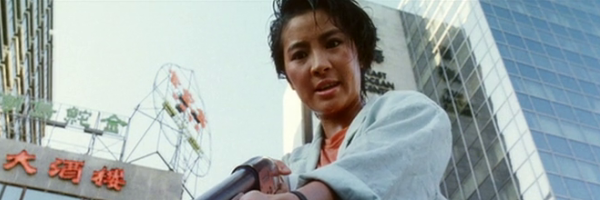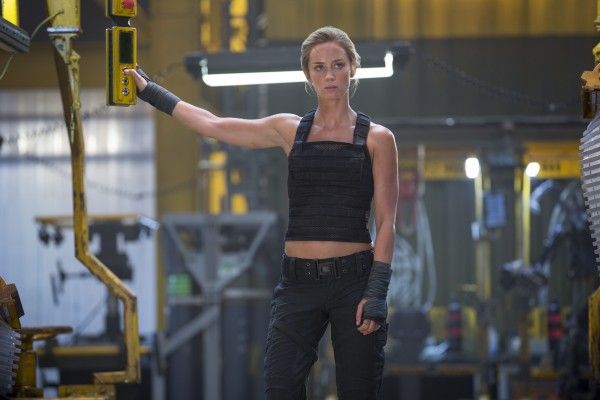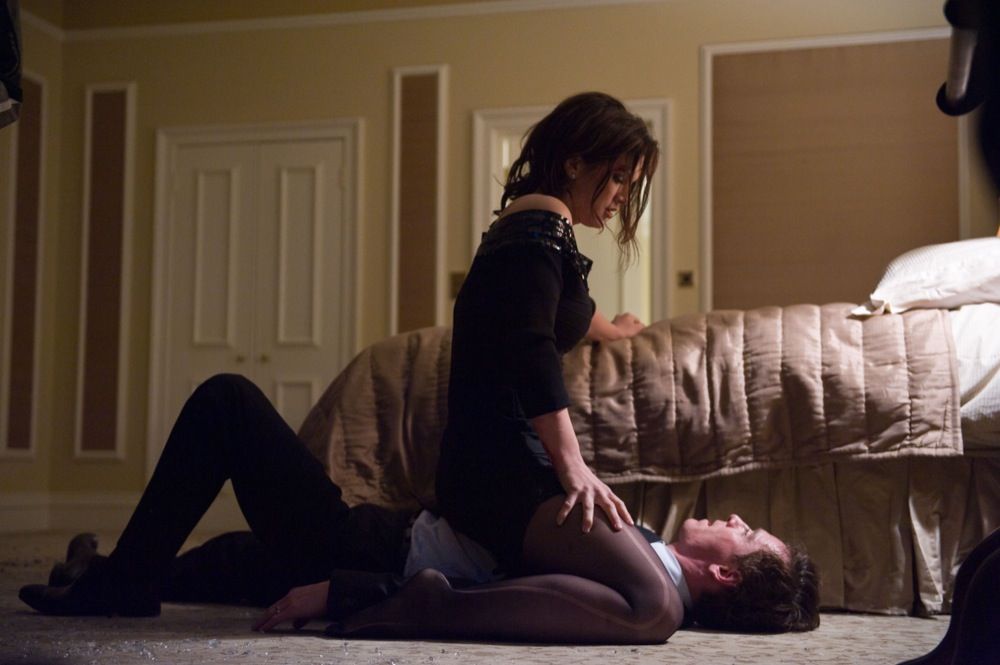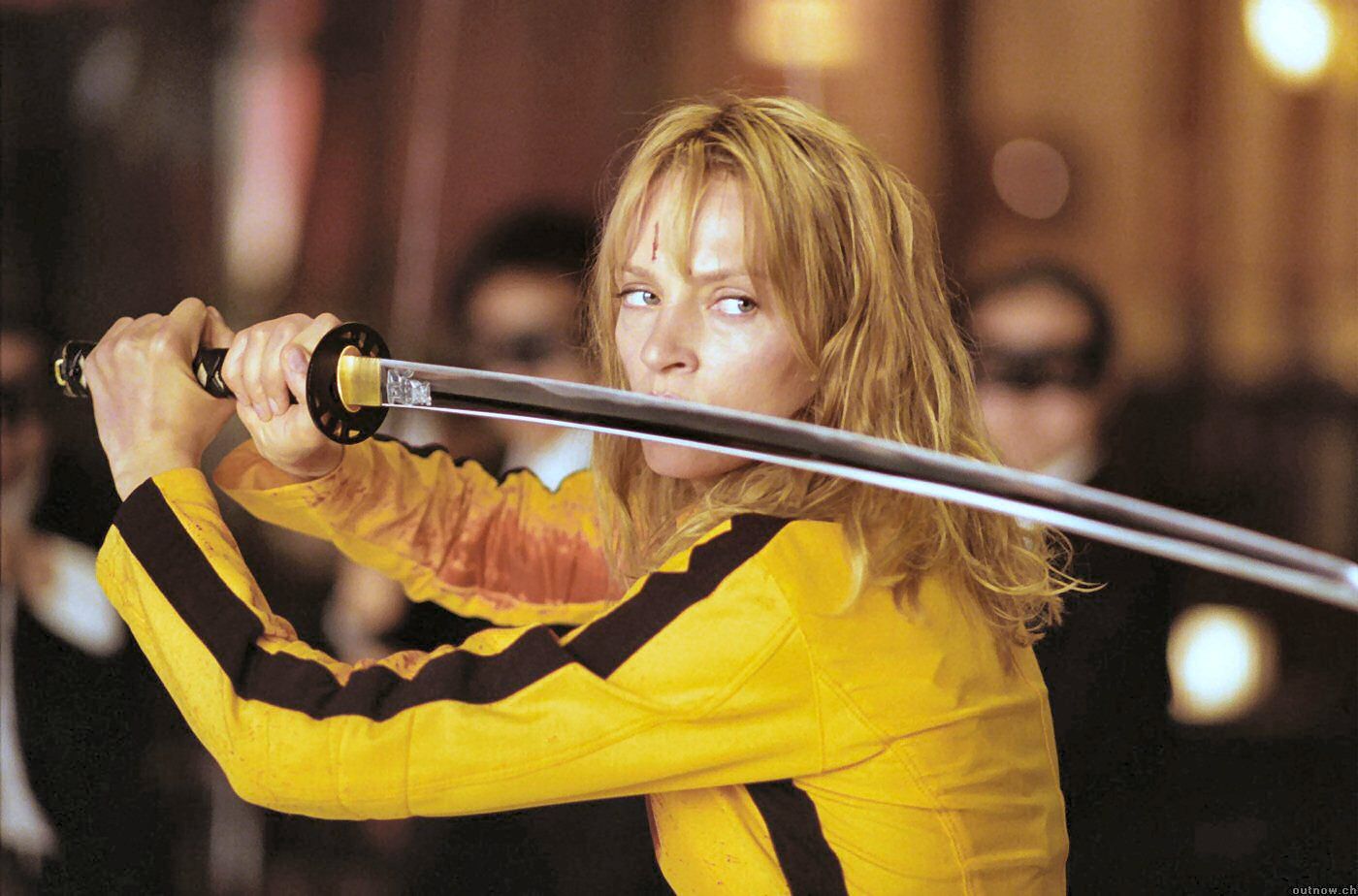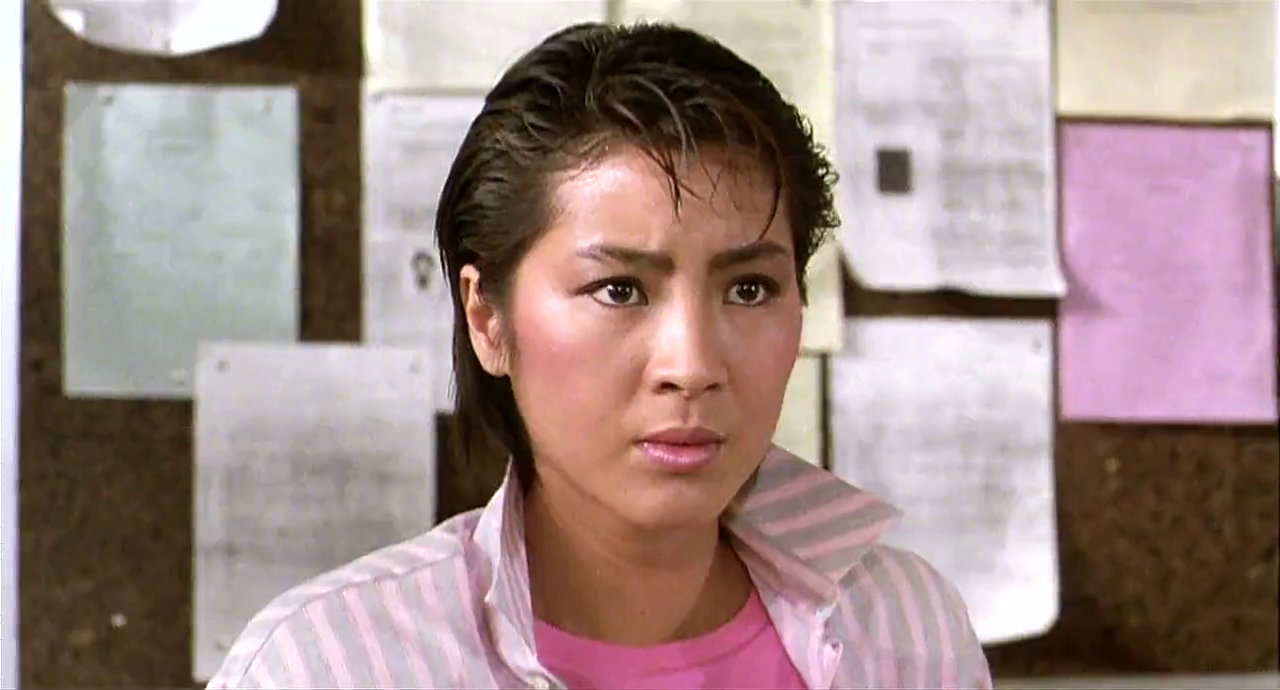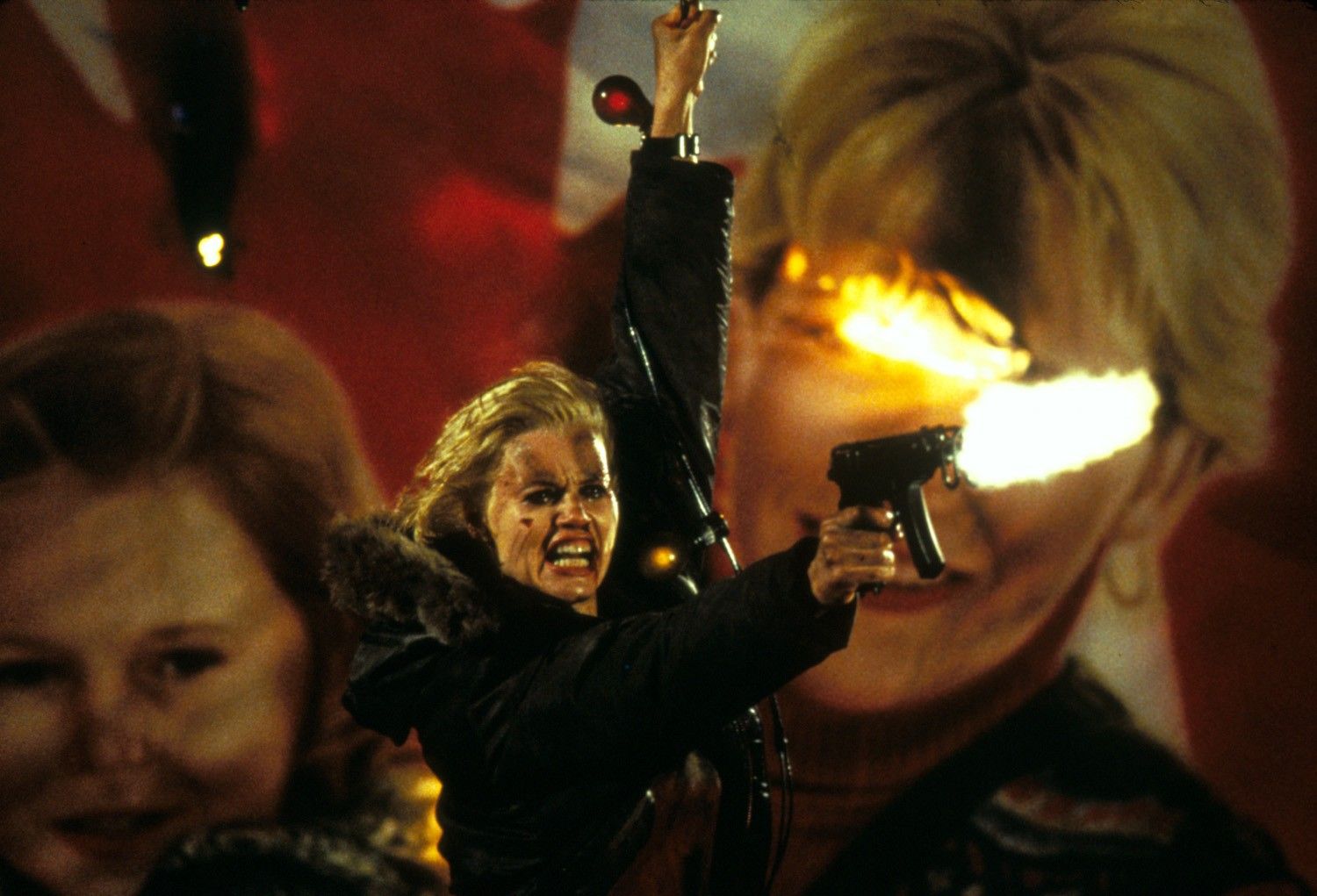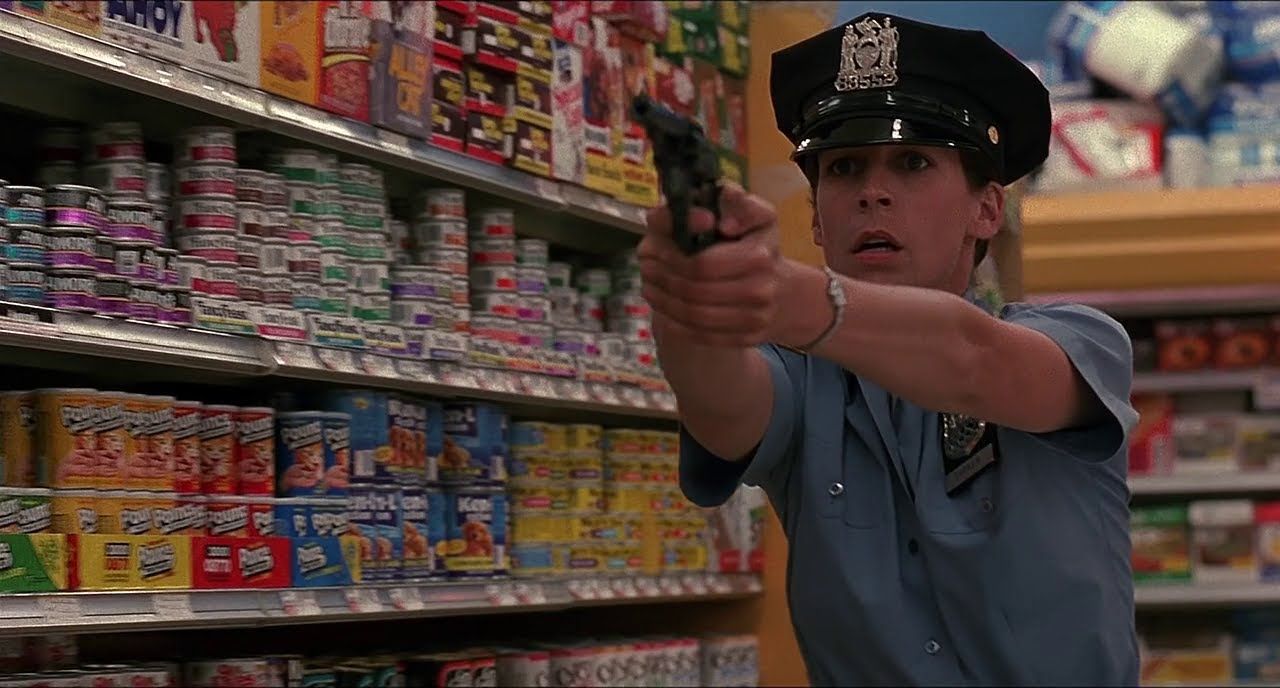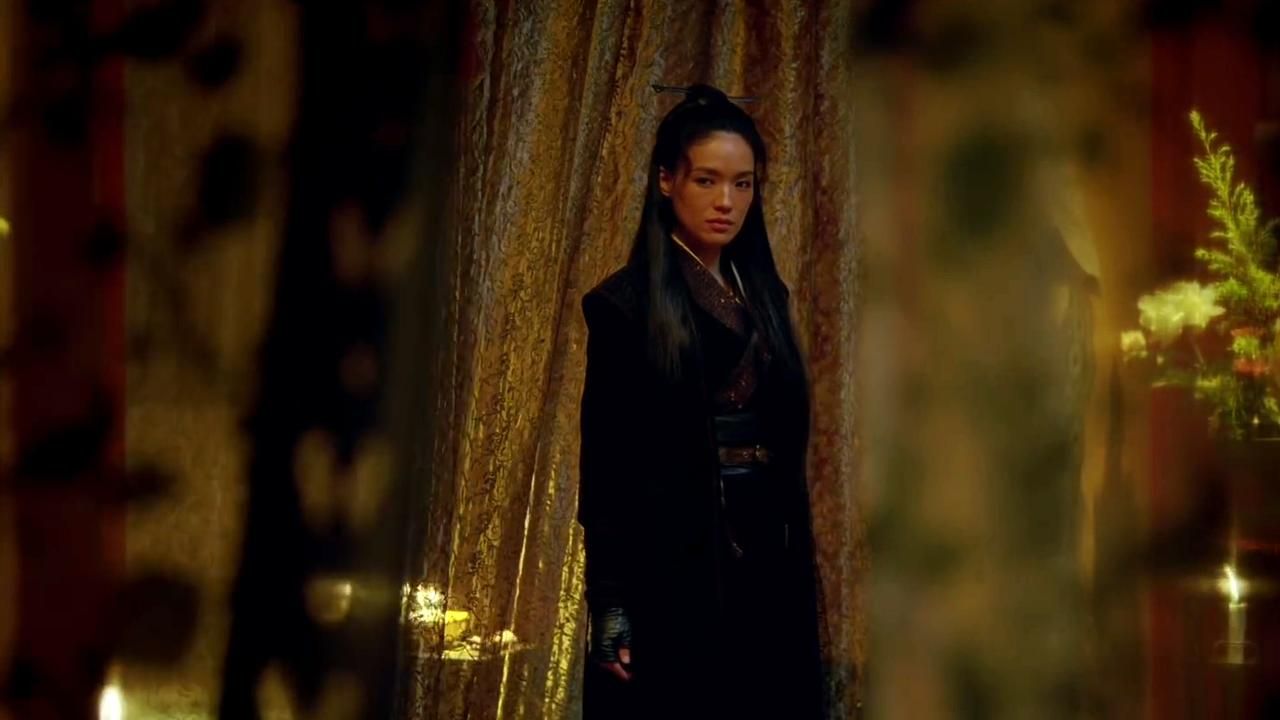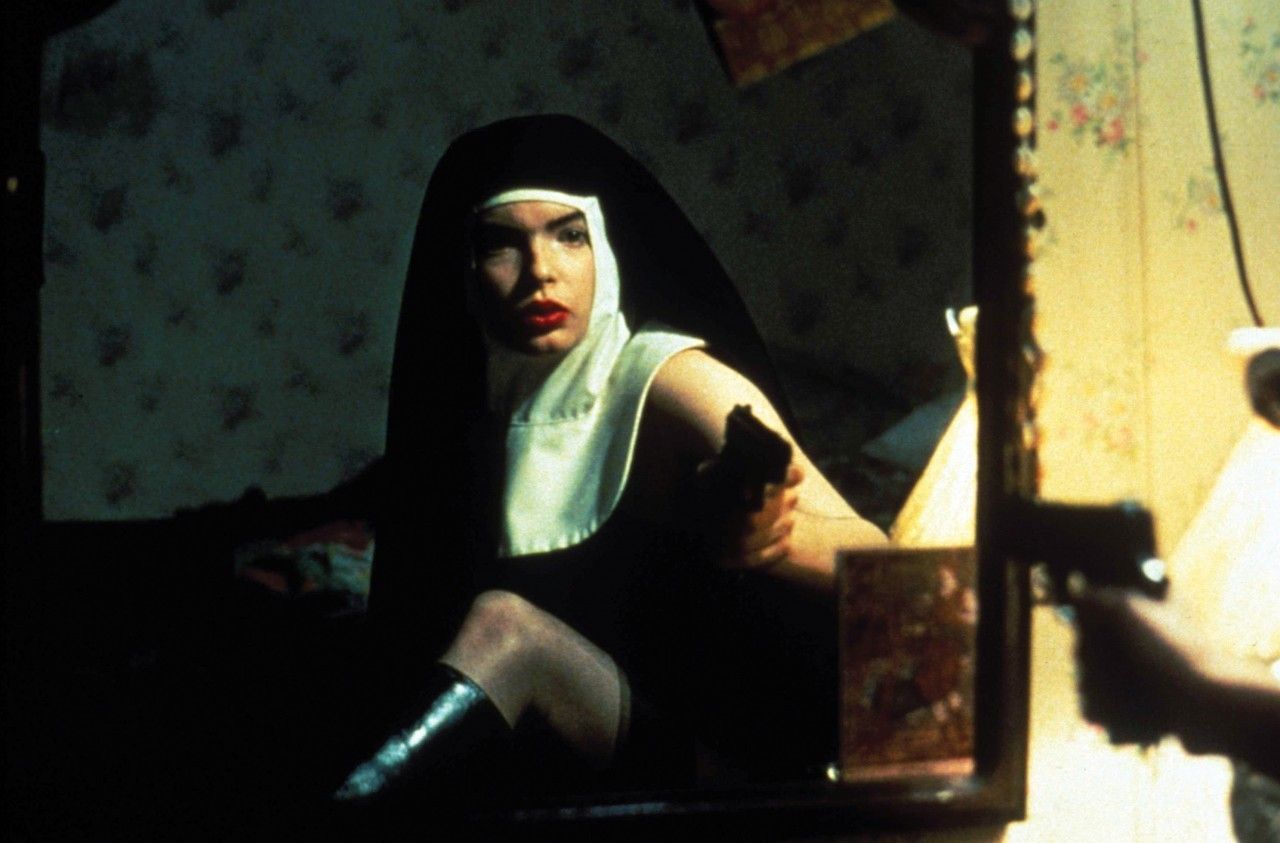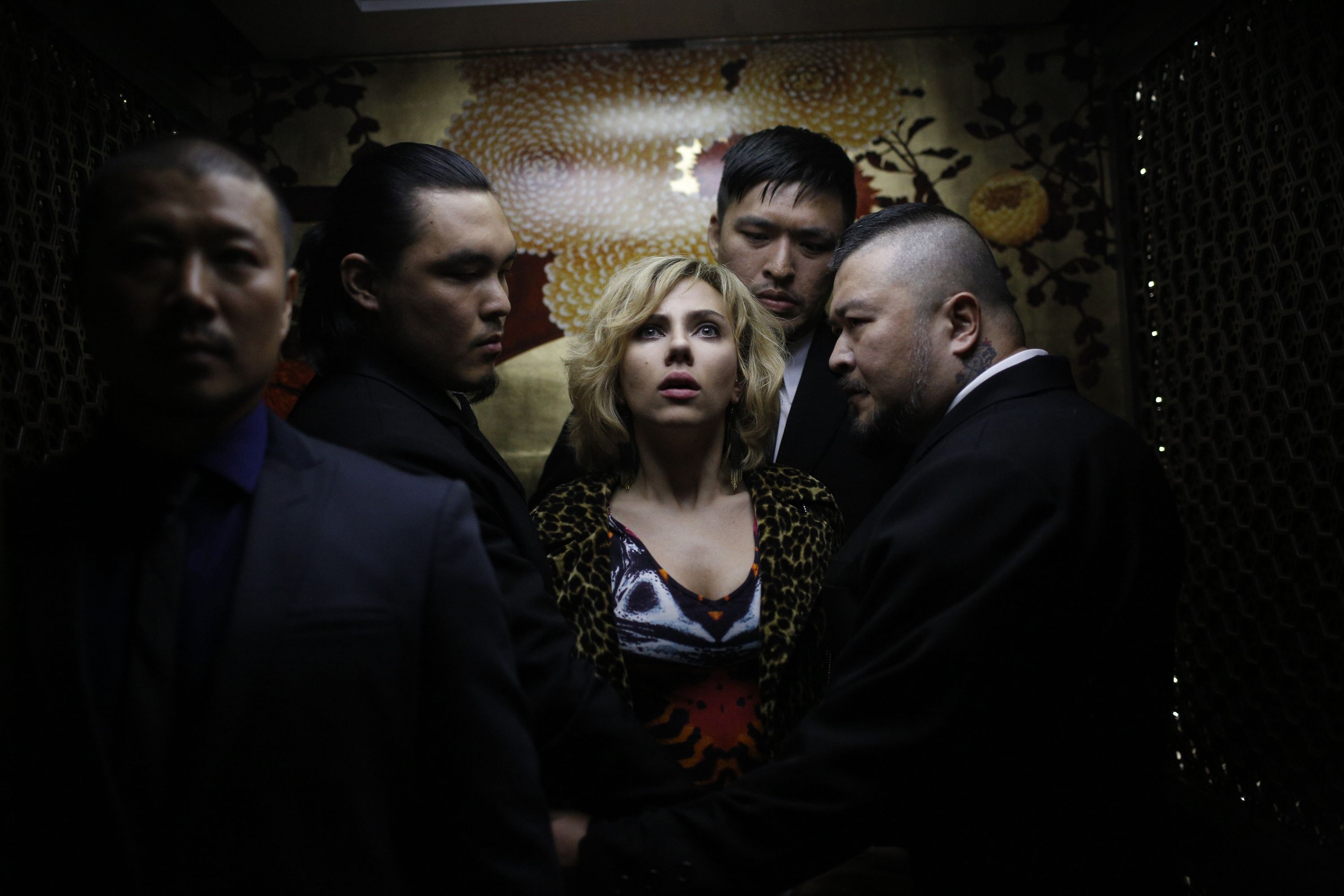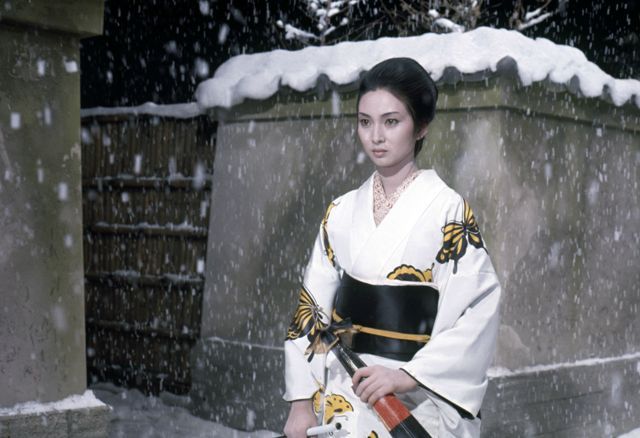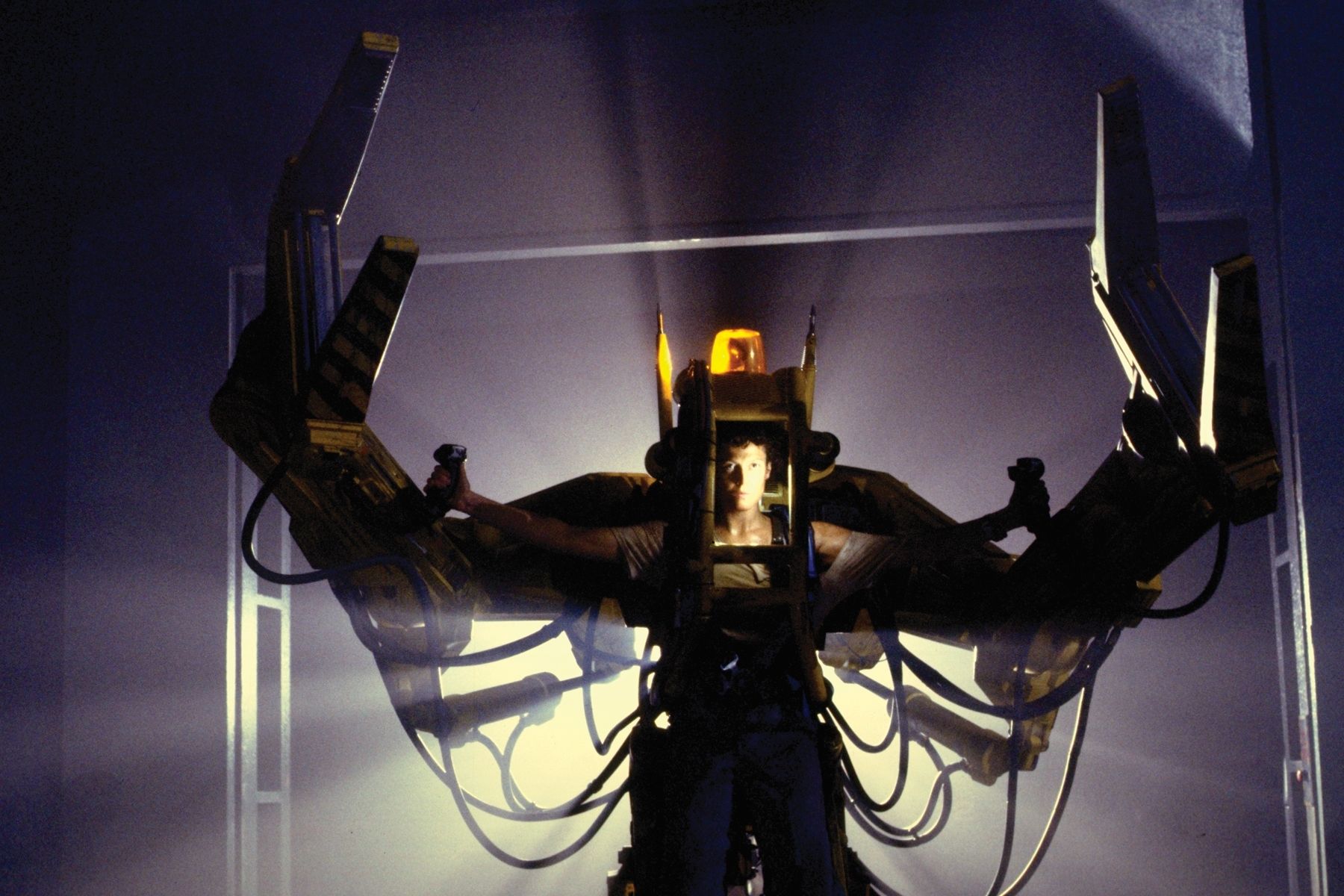When Doug Liman’s Edge of Tomorrow kicks into high gear, it’s not because of the star wattage of Mr. Tom Cruise finally reaches full brightness. It’s because Cruise’s oft-murdered soldier must fight and learn from Sgt. Rita Rose Vratask, played with no-bull skepticism and physical oomph by Emily Blunt. She’s the better soldier by a mile but by the end of the movie, she will have thanked Cruise’s character for teaching her one thing or two and everyone claps or something.
This is a slight twist on an ancient structure henceforth to be known as the Butch Cassidy Gambit, in which a wise, older man teaches and learns alongside a smart, younger whippersnapper who is often characterized as a lunatic for drinking green tea or not owning a truck. Very rarely has this partnership allowed the younger character to have the upper hand and be a woman in film. Blunt is what makes Edge of Tomorrow work but Cruise is inarguably the star of the show and the centerpiece of the film as written in the script. Outside of its impressive technical displays, Blunt is the best reason to see the movie but Cruise is who you will be watching for the most part.
It’s rare to have action films that allow the woman to be the righteous aggressor as well as the main protagonist of the narrative. Linda Hamilton is a force of nature in both of the Terminator movies, but Arnold is who James Cameron’s camera is glued to and gravitates towards constantly. Trinity is crucial to the storyline of the first Matrix, but Neo is the Unabashed Hero of the World. And when you do have women in the lead roles, such as with Underworld or Resident Evil, the characters are usually diluted down to cynicism, militaristic expertise, loneliness, and really ugly coats.
That being said, there are a handful of action movies that take a female ass-kicker as their main focus and actually build her in the script as a full-fledged character, not just a walking onslaught with a name. They do not come out often but when they do they own, so I thought it’d be worth it to highlight a few great movies where the women are front and center and usually sending some dude flying in the air, testicles first.
'Haywire'
A woman (Gina Carano) sits down at a not-quite-bustling diner. She orders coffee and not long after a man (Channing Tatum) comes in and demands her surrender for reasons that will become clear in the proceeding 100-plus minutes. To be clear, Tatum’s agent gets his ass handed to him by Carano’s surpassingly skilled freelance missionary, and he’s not the only one. The great Steven Soderbergh directs this thrilling, strikingly visual action epic with brisk pacing and a convincing focus on the details of operation prep and how problem-solving looks in high-risk, even fatal international incidents. What Soderbergh sees in it is the stresses, pitfalls, and minor pleasures of work that requires constant international travel, which Carano and a staggering cast that includes Tatum, Michael Fassbender, Ewan McGregor, Antonio Banderas, and the late Bill Paxton expertly translate into the world of freelance agents and general spycraft. Soderbergh has a long history of infusing genre material with an air of experience, bruised and furious inner lives, and humanity, and here he also keeps an eye on the matters of globalization and the legal or fiscal gauntlets that must be cleared just to thwart (or enact) a kidnapping. On paper, it sounds boring. In practice, it’s breathtaking.
'Kill Bill, Vol. 1 & 2'
It’s still just as good as you remember. Quentin Tarantino’s gleefully excessive opus about a blonde-haired storm of murder nicknamed The Bride, played with iconic poise, humor, and staggering physicality by Uma Thurman, is a love letter to the madness of martial arts movies. There are the familiar storylines – the training at the temple, the Lady Snowblood fight with Lucy Liu’s O-Ren Ishii - but also gives the language his patented hum of trashy pop-culture knowledge, ranging from Superman to daytime radio hits to, yeah, the movies. He never overdoes it though, and even when he does, Thurman’s thunderous performance holds everything together effortlessly.
The Bride's final talk with the titular criminal mastermind, played by the late David Carradine, still gives me chills but its just as important to remember the wild showdown with Vivica A. Fox’s Vernita Green or the talk between Michael Madsen’s Bud and his condescending strip-club employer. It's in these sequences that Tarantino nods toward the fuller movie he envisions, revealing an empathetic view of professional killers and a genuine curiosity about what they do after the killing is done. And really, if nothing else, you’d have the fight scenes, each one a hypnotic display of one’s most violent and unresolvable emotions prepared to draw blood for some sincere recognition.
'Yes, Madame!'
Look, it’d be pointless for me to try to explain everything that happens in this absolutely bonkers bloodbath, starring Michelle Yeoh as an ace copper in Hong Kong who must team up with an American fighter (Cynthia Rothrock) to take down a vague criminal syndicate. What you should know is that the movie opens with Yeoh’s quasi-mulleted Inspector Ng busting a flasher by taking an open book and squishing his genitals between the halves, and that is followed by one of a handful of truly astonishing fight sequences. Director Corey Yuen goes for straight jaw-dropping thrills on this one and he more than exceeds with Yeoh anchoring the bedlam he unleashes with unbridled glee.
'The Long Kiss Goodnight'
Shane Black rightly gets a lot of credit for his script for Lethal Weapon, but there’s just as much to love about his ribald, snappy dialogue and action-genre structuring in the script for The Long Kiss Goodnight. Director Renny Harlin provides a kinetic pace and all the explosions, gunfights, and hand-to-hand combat you can handle in this story of a housewife (Harlin’s off-screen wife Geena Davis) who slowly remember her former life as a deadly assassin. Harlin does an admirable job but the film belongs to Black’s preternatural understanding of the genre, as well as a tremendous cast top-lined by Davis, Samuel L. Jackson, Brian Cox, Craig Bierko, and David Morse. The winter setting, set against a lot of fire and hot lead, invokes a feeling of reawakening from a frozen state of mind and Black’s writing offers a few more uniquely strange set-pieces, such as the deer-killing after the car accident that awakes Davis’ mommy dearest or the bananas climactic showdown. All the while, Davis and Jackson burnish chemistry that few action films have been blessed with, adding an all-important human element to a genre that’s often happy enough to drifts along on autopilot.
'Blue Steel'
An undervalued entry in Kathryn Bigelow’s filmography from the 1990s, right before she would direct Point Break. Rookie cop Jamie Lee Curtis spoils a robbery at a grocery store and saves the lives of a local businessman, played by a deeply unsettling Ron Silver. From there, the man develops an obsession with Curtis’ cop and begins to kill to get her attention, just when she’s trying to get things started with the exceedingly hunky Clancy Brown. Is Silver trying to regain his masculinity after being saved by a woman? Bigelow keeps a simmering psychological undercurrent throughout, while toying with gender roles in Curtis’ showdown with a man grown murderous after a brush with death and a desperate need for control. The director is also generous with her paranoid atmosphere and hones a steady, engrossing pace, but this is also just a great cop movie, underscored by a preternatural understanding of the experience of being a women in a classically masculine role in the world.
'The Assassin'
Hou Hsiao-hsien‘s long-awaited entry into the wuxia genre features breathless fighting sequences, often masked or hemmed in by the gorgeous coverage of nature, and an abundance of Chinese politics to hash out, but the film’s thunderous heart is a broken one. Hsiao-hsien’s latest centers on the titular killer for hire, Nie Yinniang (Shu Qi), who is dispatched to slay her cousin, Tian Ji’an (Chang Chen), whom she was meant to marry once, before she took her oath to her master. Her journey to his palace in the Weibo province is fraught with other hunters, and the filmmaker makes grand, active sequences out of these encounters, all while suggesting his own subject view of the world via shots of his heroin stalking along the periphery, cloaked by shadow, nature, and household materials.
And yet, it’s the unbearable sting of being tossed aside, for little more than political and familial gain in the imperialist age of the Tang Dynasty, that drives Nie and, ultimately, this sublime film. When she finally meets face-to-face with Tian, Qi emanates fury and hurt in equal measures, and Chen, one of China’s greatest living performers, embodies the increasing hollow feeling for a political system that’s strictness, elitism, and lack of progress have turned him bitter. The intricacies of the intertwining historical and political motives are the fuel for, and a reflection of, the lovers’ discontent, set against bucolic vistas that can barely contain skilled, physical feuds.
'Ms. 45'
Abel Ferrara has long been the living embodiment of no-bullshit New York filmmaking, even after spiraling out to helm such strange international masterworks as Mary and Welcome to New York, but it all started with Ms. 45. Written by longtime Ferrara collaborator Nicholas St. John, who wielded the pen behind King of New York and The Funeral, the movie takes a far more daring leap-off from the vigilante daydream of Death Wish, with mute seamstress Zoe Lund turning into a night-stalking killer after she’s raped twice in one day. The struggles of a single woman living alone in New York – in the early 1980s no less – are of particular concern to Ferrara but he also goes for pure blind fury, and Lund gives him an ideal vessel in her transformed, angry survivor. The entire premise screams B-movie nonsense but Ferrara, one of the great stylists to come of age in New York in the 90s, elevates it into a screed against an intrinsically misogynistic society that at once puts women on an unwanted pedestal and give them as little support against sexual assault or spousal abuse as possible. The movie seethes with resentment and bloodlust.
'Lucy'
Easily the most interesting action movie Scarlett Johansson has appeared in, unless you count Under the Skin under this rubric. Johansson’s titular heroine begins to understand, well, everything, utilizing the effects of a neurological drug to break down the exterior world and dismantle the criminal agency that first abducted her and gave her the powers. Morgan Freeman is around to deliver exposition eloquently, and Oldboy himself Choi Min-sik is a fantastic lead nemesis. The action is gravity-defying and wildly imaginative, to the point that Lucy becomes borderline experimental in its use of montage and spectacle. If you try to keep ahold of the story and don’t get drunk on Besson’s nonsense, it’s laughable fun at best. For those who have no issue drinking Besson’s kool-aid, however, this 2014 hit is a rare jolt of ecstatic filmmaking energy in a desert of stiff, predictable explosion porn.
'Lady Snowblood'
Yes, Toshiya Fujita's Lady Snowblood is best known as a crucial influence on the aforementioned Kill Bill, but there's reason to believe that this 1973 martial-arts masterwork and its sequel, Love Song of Vengeance, are just as good as that diptych. The origins of the titular assassin, played by Meiko Kaji, are just as dark as The Bride - she's the result of a vengeful widow getting purposefully pregnant in prison to birth and mold a perfect killing machine. The mother dies in childbirth but gets her wish, as Lady Snowblood goes about her duties to wipe out her mother's enemies with a cold, brutal detachment. More than most films that take similar narrative tactics, Fujita's film presses just how easily identity can be erased in the name of manufactured destiny, how Kaji's killer was never allowed to be a person but rather was raised as a crucial cog in the elaborate system of war. The fights are gripping and effortlessly fluid, and plenty of blood is sprayed, but what really makes Lady Snowblood stand out is its view of a young, brilliant woman separated from herself and stuck exclusively in the past, all in the name of an unthinking, never-ending blood feud.
'Aliens'
There had to be at least one Ripley movie here. It's hard to choose between this one and the undervalued Alien 3 when it comes to which one is most anchored by Sigourney Weaver's heroine, but I'm going with the populists on this one. This is also the one that features Ripley vs. the Queen, which caps off a long, nerve-frying chase through extraterrestrial hell that kills off all but a handful of survivors. That's all well and good but it's worth remembering that the movie begins with Ripley coming to terms with what happened in the aftermath of Alien, and its her need to understand what happened and to attempt to prevent another slaughter that sends her back out into the black abyss of space. Aliens is many things - a science fiction classic, a master class in pacing, the best action film of 1986, etc. - but what it rarely gets recognized is its vision of women in warfare, as much about Ripley's ability to kick ass as the regret, anger, pain, and horror that comes after.

